
Qoshairi
Manifest
Chapter 10
Silence (Samt)
Discussion
Join
Apercu
Abu Huraira has narrated from
the Prophet peace be upon him, “Whomsoever believes in Allah and the
day of judgment tell him not to annoy the neighbor, whomsoever believes
in Allah and the day of judgment tell him to be good to the guest,
whomsoever believes in Allah and the day of judgment tell him either to
say good or be silent”.
‘Aqaba Ibn ‘Amer said I asked
the Prophet what is the salvation? And peace be upon him replied, “Hold
back your tongue, be good to people and sob (in your house) about your
own sins”. (Stop talking about how bad other people are and worry about
your own sins and do so please privately)
Ostaad Imam said, “Silence is
a salutary & salubrious foundation, its violation the source for
all regrets and it deserves the observation of mandatory Shariah
(Divine Law). Silence at proper circumstances is indeed an attribute of
righteousness and speaking in apropos moment is one of the most noble
characteristics.”
Silence is an Adab (Etiquette)
facing the Divine Presence, “When the
Qur'an is read, listen to it with attention, and be silent”
(Koran [7:204]).
And Allah said, “All sounds shall humble themselves in the
Presence of ((Allah)) Most Gracious: nothing shalt thou hear but the
tramp of their feet (as they march)” (Koran [20:108],
describing when Mankind resurrected to face the Lord). There is a huge
difference between a man that assumes silence in order to avoid
backbiting & lying and the slave that is subdued & overcame by
the overpowering Divine Awe & Dread as has been versed:
While we
are apart I think about what to say
Solidifying
the reasoning behind every word
I forgot
everything when we are face to face
In our
conversation talking nonsense all over
(When the Sufi is afar from
his Beloved he thinks about many things to say but once facing slight
gesture of the Divine Presence Sufi is lost, wordless & bedazzled)
***
O Night!
Much I have to tell you about my so many needs
As
soon as you are brought to me I find
none of such needs
(Sufi has needs wants to have
more knowledge, suffering from the trials perhaps people ridiculing him
and needs more respect, but as soon as beholds a glimpse of his Beloved
all these needs & complaints are gone)
***
For you
how many things there are I want to say
Once
allowed to meet you but I am made to forget
(The Sufi’s memory is erased
by the Beloved’s Presence, it is not that he forgets, indeed he is MADE
to forget)
***
I see how
the words adorn you my young lad
Silence
proffers him much once he is quiet
Words
& conversations bring so many deaths
So the
speakers wish they would have been silent
***
There are two kinds of
silence, one to be silent on the surface i.e. the wordlessness and the
second is the silence within the heart. First the one mastering his
life concerning his daily ration of provisions with silence (and
gratitude) second the ‘Aref (Divine Cognoscente) whose heart is silent
(at peace) characterized by the complacence deep within no matter what
the Divine Edict, as was versed:
Gushing at
you Its edicts are fluent
Your
silent sufferance well-trodden
(Well-trodden means frequently
suffering comes and goes on the path of silence)
Much of the causes for the
Silence are Hayrat (Bewilderment), Kashf (Uncovering Secrets) happening
suddenly engulfing people with dazed wordlessness. Words & speech
evidence & reasoning fades away, within this Silence there is no
room for knowledge or sentience as Allah said, “One day will Allah gather the apostles
together, and ask: "What was
the response ye received (from men to your teaching)?" They will say:
"We have no knowledge” (Koran [5:109]). (In that day when the
apostles are recollected and behold Allah with their own eyes they go
into a Silence caused by the shock of the meeting with the Royal
Majesty so they forget what people did to them!?)
The sacrifice of those who
strive hard to master the art of Silence is the price paid for
realization that much of the words’ plague & evil is nothing but
the influence of the Nafs (Psyche).
In other words the self-admiration
is the cause of the problem and as well other forms of communication
that plagues the Mankind. Silence is the foundation for strengthening
the faultlessness of the Kholoq (Disposition & Behavior).
People said that when Dawood
Taa’ee willed to be in Solitude in his house, he sat at Abu Hanifah’s
sessions (Abu Hanifah was his student I guess) amongst the scholars
though did not utter a word. Once his body gained strength (from this
silent practice), for one year took up Solitude in the house.
Omar Ibn Abdul-Aziz (The Fifth
Caliph) if received a letter with nice praising words within would tear
it apart.
Besher Ibn Al-Harith said, “If
you are amazed at some speech assume silence and if you are amazed at
something/someone silent then speak”. (If you glance through the lens
of a telescope into a never seen fantastic galaxy, there is silence
since the object is not talking and your are focusing on the beauty,
whereat you start speaking with excitement of the discovery. Correct
sequence of events: Silence, staring, amazement then speech.)
Sahl Ibn Abdollah said,
“Silence is not performed properly unless the person assumes Khalwah (Solitude)
and repentance is not performed properly unless the person assumes
Silence”.
Abu Bakr Farsi said, “The
person who is not silent ends up meddling (in affairs that are none of
his business and he does it in most uncivilized manner). Silence is not
just for the tongue, but it is for all the other members of the body
e.g. the heart, the limbs. (Your limbs and skin will talk after yor are
resurrected from the grave telling the person the evil he did with
them, so please do not let them talk, “At
length, when they reach the (Fire), their hearing, their sight, and
their skins will bear witness against them, as to (all) their deeds.
They will say to their skins: "Why bear ye witness against us?" They
will say: "(Allah) hath given us speech,- (He) Who giveth speech to
everything: He created you for the first time, and unto Him were ye to
return.” Koran [41:20-21])
Someone from this Nation
(Sufism) has said that if a person does not highly value the silence
e.g. like gold, then he will speak falsehood.
Memshaad Dinvari said, “The
wise men found wisdom through Silence & musing.”
Abu Bakr Farsi was asked for
the secret of silence and he replied, “Not being occupied about the
past nor the future”. (Focusing on the exactness of the present’s
reality, forsaking the unchangeable past and unpredictable future)
He further said that the slave
should talk just enough as needed and stretch the boundaries of the
Silence as far as possible.
Yahya Ibn Mo’Az said, “Speak
little with people and much with the Lord so the Royal Highness may
glance upon your heart”
Dhanoon Al-Masri was asked who
is the most pious preventing the evil of his person, he replied the one
how is most silent.
Ibn Mas’ood said nothing is
worth jailing more than the tongue.
Ali Ibn Bakkar said, “The Lord
has placed a double-door on everything but on the tongue put two
double-doors i.e. two lips & two rows of teeth”. (This is actually
some poetry to indicate the wideness of how much evil can pass through
a two wide double-doors)
People said that the Abu Bakr
Saddiq (Caliph) for years used to carry stones in his mouth to help in
speaking less.
Abu Hamzeh Baghdadi used to
say nice good words all the time until one day a voice (angelic) called
out to him saying, “Much nice words you have uttered but it would have
been nicer if you were silent”. Therefore he did not speak unless was
commanded, lived another week after this incident.
So many folk found new Adab
(Etiquette) during silence and some others lost some Adab (Etiquette)
while talking.
Shebly was asked to sit in a
discussion circle and he was asked a question, he replied, “And the Word will be fulfilled against
them, because of their wrong-doing, and they will be unable to speak
(in plea).” (Koran [27:85]). (This is what happens to people when
Allah, on the Day of Judgment asks them, “Until, when they come (before the
Judgment-seat), ((Allah)) will say: "Did ye reject My Signs, though ye
comprehended them not in knowledge, or what was it ye did?"
Koran [27:84]).
There are so many who are
better off to be silent since there are others better in speaking than
them.
Ibn Sam-maak said that between
Shah Kermani and Yahya Mo’Az there was a wonderful friendship. And
there was a time when both men were in the same city. But Shah would
not attend the Yahya’s sessions and he was asked why? And he replied
that there wouldn’t be anything good coming out of it. Until one day
coincidentally Shah had to sit in Yahya’s session but sat some place so
Yahya would be unaware of his attendance. Once Yahya started the speech
he fell silent and said there is someone here who is superior to me in
speech and continued with silence. Shah said, “Didn’t I tell you my
attendance would bring forth no good”.
There are so many cases where
the speaker falls silent since there is someone amongst the listeners
who is not privy to that speech thus the Lord makes the speaker silent.
There are many others their
silence was caused by the Lord since the words would have caused
trouble for a listener, some burden may fall on him, which he could not
endure.
The Pir (Elderly) Sages have
said that sometimes the speaker becomes silent due to the presence of
the Djin, since this Nation (Sufism) is not devoid of the Djin.
I heard Abu Ali Daq-qaaq
saying, “When I was in Marw I became ill but I was longing for
Neishaboor and fell asleep and in my dream I heard a voice addressing
me: You can not leave this town since there is a group of Parian (Pl.
Pari means female Djin or evil spirits) who love your speech and they
attend your sessions and it is because of them that you are stuck
(stationed) here”.
One of the wise men said that
people are created with one tongue but two ears and two eyes to make
the listening and seeing more than talking.
Ibrahim Adham once was invited
to attend a meeting and as soon as he sat people started backbiting. He
told them, “Where I come from we eat the bread first then the meat but
it seems you guys eat the meat first” this was Ishaarat (Paradigm to
hint at) for the verse, “Would any of
you like to eat the flesh of his dead brother?” (Koran [49:12],
this verse was revealed with regards to suspicion, spying and
backbiting)
Some person said, “Silence is
the language of wisdom”.
Another person said, “Learn
Silence as you learned speech, so that if the words show you the way
(towards evil?) the Silence shall stop you”.
People said, “Virtuousness,
continence and abstinence are the language of the Silence. Indeed the
tongue is similar to the wild savage beasts if you do not bind them
they will attack you immediately.”
Abu Hafs was asked about the
comparison between the silence & speech and he replied, “If the
speaker knew the plague of speech he would stay silent at every chance,
and if he truly knows the evil of the speech he would be silent as if
he has the life of Prophet Noah (i.e. 1000 years of life so he has so
much time to talk later on). It has been said the Silence of the ‘Aam
(Broad, Public) is the lack of the speech, the silence of ‘Aref (Divine
Cognoscente) is his heart (i.e. at peace with Allah’s decree for his
life) and the Silence of the lover is to conceal the thoughts (i.e. do
away with logic & reasoning keep the love a secret from them, or it
means if the lover talks too much, words ruin the love).
Someone was asked to speak and
he said he has no tongue for speech and he was asked to listen and he
said there was no more room inside for listening.
Someone else said I paused for
thirty years and my tongue listened to my heart & I paused another
thirty years and my heart listened to my tongue.
One of the people said, “Your
tongue can never escape the voice of your heart, and even if you are
turned into dust you can never run away from the voice of the Nafs
(Psyche,
Soul) (i.e. enticing you to desires & lusts). And you must
strive hard to prevent your soul/Nafs to speak with you since (this
speech) covers up the secrets (even more).” (When you talk to yourself
within, this noise covers the elegant hum of the secrets)
Many have said tongue is the
key for the person’s destruction.
Some said once the lover is
silent he dies (i.e. joins the Beloved) and once the ‘Aref (Divine
Cognoscente) is silent he becomes a king (King of his Self since if the
Aref talks to people shows off with his knowledge he looses his own
Self thus becomes slave to the Self. But if stays silent he knows his
Self and can command the Nafs)
Fadhil Ayyadh said,
“Whomsoever speaks because he is doing something he ends up speaking a
little, except what is useful for his work”. (Huh? I guess this was
said for DARA)
End.
Apercu
Silence is the fountain of
strength for Dervish, strength for his heart, mind, soul as well as the
body. Silence allows his soul to hear the faint hum of the secrets. He
is silent on his tongue, on his hands, on his legs, on his eyes and on
his skin. His silence not only waving at the surface, but tumults the
hadal waves deep within him with complacence & conformance about
his destiny.
Dervish prolongs the silence,
meanwhile stares, suddenly beholds the Divine Wonders and then says
words that would enchain other hearts. Dervish learned how to speak and
he knows it takes much effort to learn how to be silent. As with the
language he must read, practice and socialize with the people that
speak that tongue, he must study hard, practice much and associate
himself with other folk who know about silence.
The day he learns the Silence,
is the day Silence is worth its weight in gold! And his wisdom is
nothing but the new golden language made from Silence.
Dervish uses the Silence to
hold the present in abeyance, past & future during the Silence have
no more meaning thus the vexed billows of his destiny are dampened and
all is left is the present moment with his Self completely drowned in
Silence.
Dervish mines rare &
precious morality from the harsh mines of Silence, while binding the
savage beasts of his words.
Dervish knows words are the
key to his destruction, therefore casts away the key deep within the
waves of Silence.
Contributor:
‘Adel Mahmood who helped in
translating the Arabic poem in Toronto’s Tim Horton’s
©
2004-2001,
Dara O. Shayda
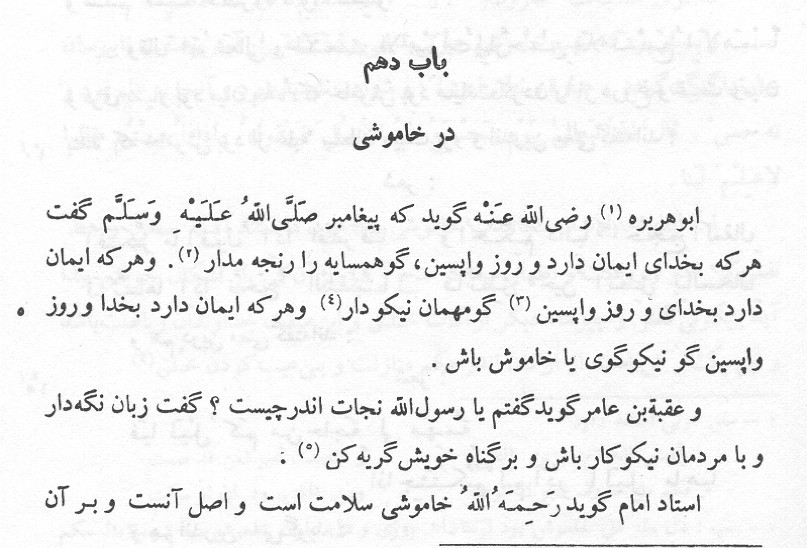
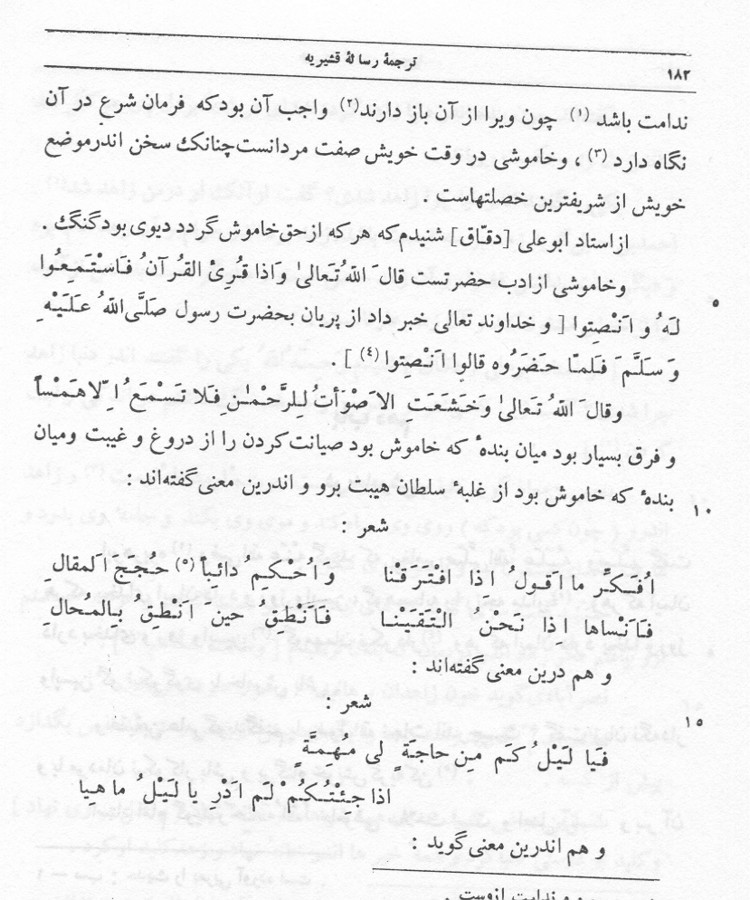
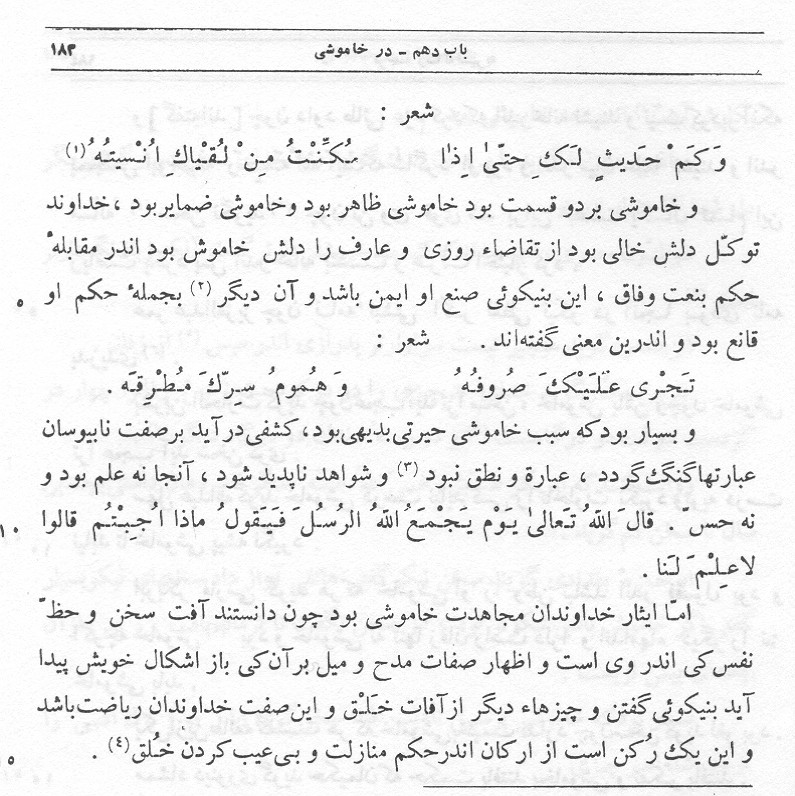
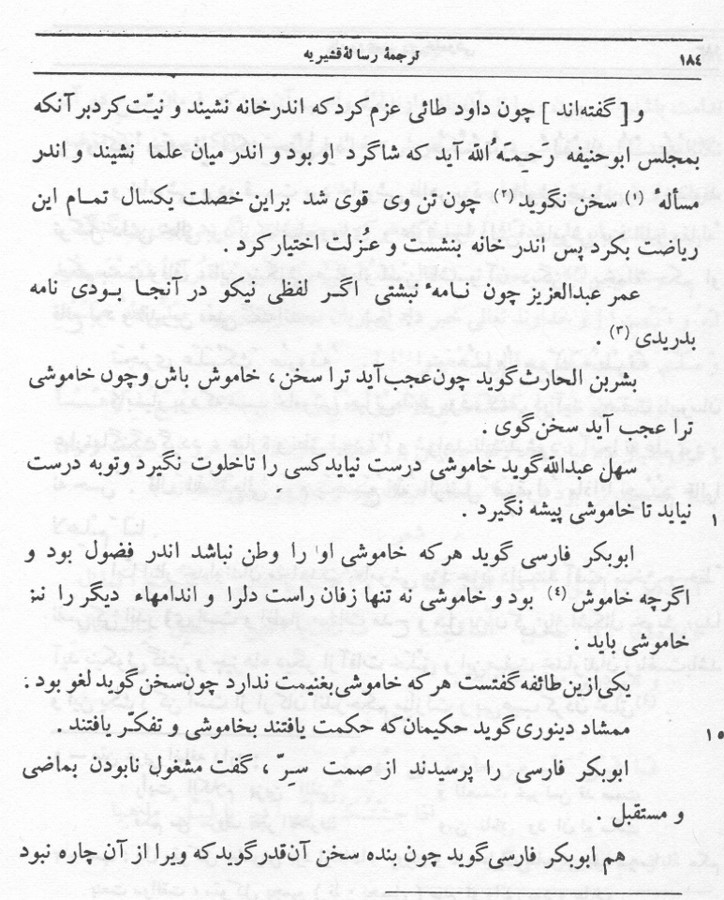
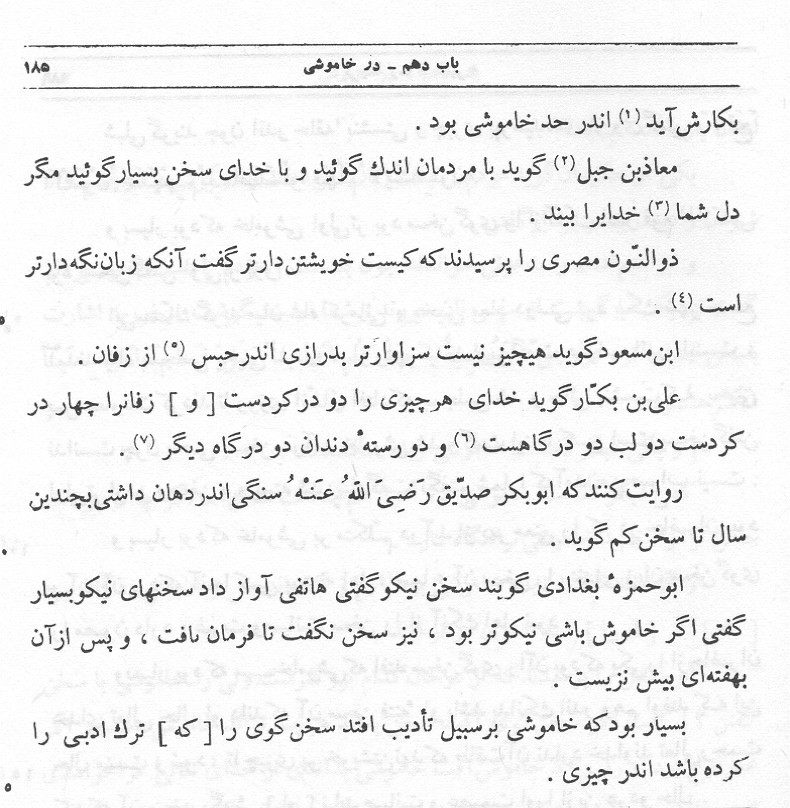
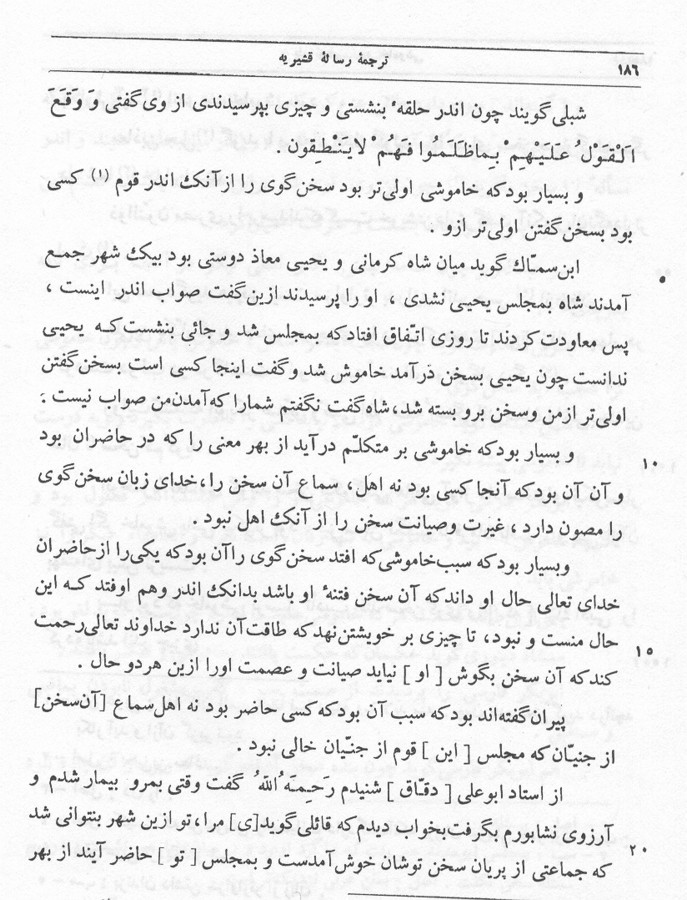 ]
]
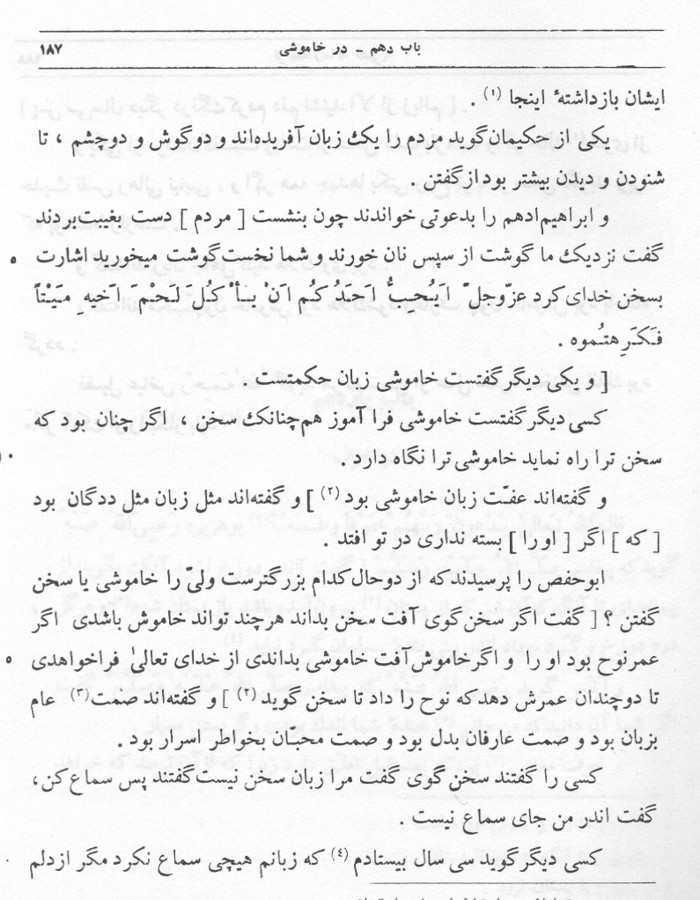
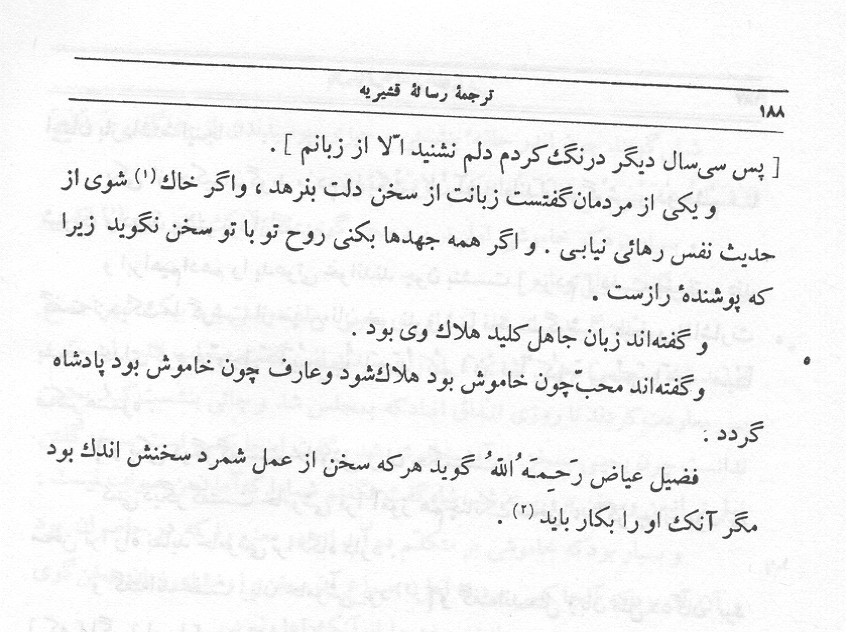






 ]
]
